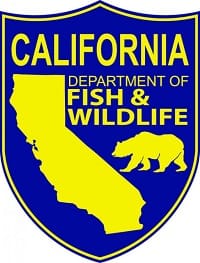California Spiny Lobster Season Opens Sept. 28 with Improved Lobster Report Card System

Fishing for California’s spiny lobster is one of the most highly anticipated angling activities of the year. Beginning Saturday, Sept. 28, hundreds of divers and fishermen equipped with lobster hoop nets will descend upon the ocean waters of Southern California in pursuit of this tasty crustacean. Lobsters may be taken only by hand or hoop nets.
Everyone diving or fishing for lobsters must have a valid California fishing license, a spiny lobster report card and must carry a measuring gauge to ensure their lobsters are of legal size. Daily bag and possession limits are seven lobsters per person and each lobster must measure a minimum of three and one-fourth inches measured in a straight line on the mid-line of the back. For a diagram and instructions, please see page 101 in the 2013-2014 Ocean Fishing Sport Fishing Regulations, available online at http://www.dfg.ca.gov/marine/regulations.asp or wherever licenses are sold.
New this year, recreational lobster fishermen may purchase a spiny lobster report card that will run the entire fishing season, from Sept. 28, 2013 through March 19, 2014. Lobster report cards must be returned to the California Department of Fish and Wildlife (CDFW) by April 30, 2014, following the closure of the lobster fishing season on March 20. Fishermen may record report cards online at http://www.dfg.ca.gov/licensing/ols anytime between the end of the lobster season until the April 30 deadline, or return report cards by mail as has been done in the past.
CDFW staff anticipates a higher return rate with the new seasonal program. Last year, just 32 percent of the 37,000 lobster report cards purchased were returned.
“We depend on the recreational lobster fishermen to provide CDFW with data to help us better manage the fishery,” said Senior Marine Biologist Kristine Barsky. “Low return rates result in increased costs for CDFW, such as conducting additional data collection to fill data gaps, managing without adequate data, increasing outreach efforts to remind anglers to return report cards, and enforcement.”
Report card holders who fail to return their 2013-2014 seasonal lobster report card by the April 30, 2014 deadline will be assessed a $20 non-return fee when they purchase a 2014-2015 lobster report card. The non-return fee can be avoided by returning lobster report cards by the deadline, or by sitting out the entire next fishing season.
“The lobster report card is the primary means of collecting data from the recreational lobster fishery,” Barsky said. “The number of report cards being purchased suggests a sizeable population of people targeting lobster in Southern California. Data collected from report cards allows CDFW to detect changes in the fishery, whether it’s a trend in harvest success or a change in gear type. This information is vital for managing California’s lobster resource.”
Fishermen who have already purchased a 2013 calendar year lobster report card can rest assured that the card is still valid through Dec. 31, 2013, and due back to CDFW by Jan. 31, 2014. If 2013 calendar year cardholders wish to continue fishing for lobster from Jan. 1 through March 19, 2014, they will need to purchase the new seasonal lobster report card. CDFW notified all 2012 and 2013 lobster report cardholders by mail with a letter and new brochure detailing the changes affecting the lobster report card. The brochure includes new protocols for reporting a lost card in order to avoid the non-return fee.
For more information about the Spiny Lobster Fishery Management planning process currently underway, or to download a copy of the new lobster report card brochure, please visit http://www.dfg.ca.gov/marine/lobsterfmp.

